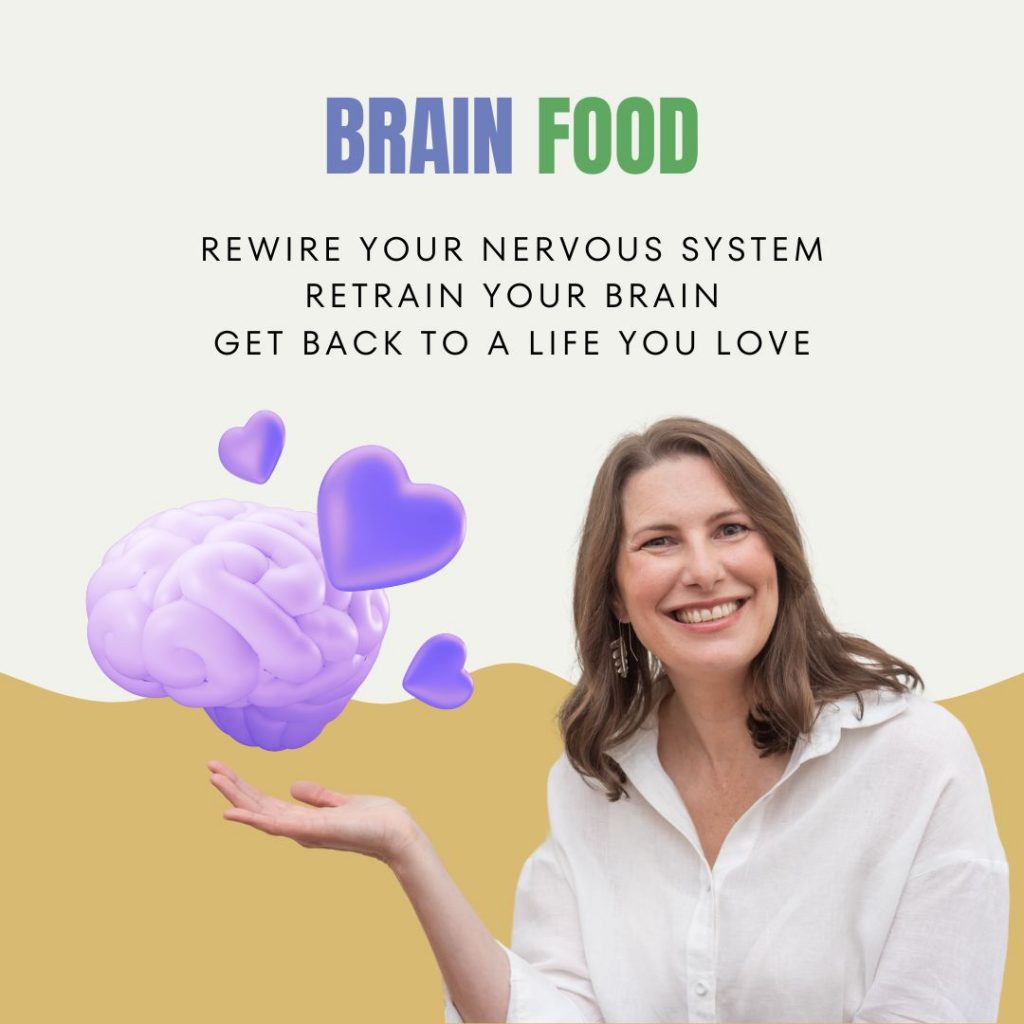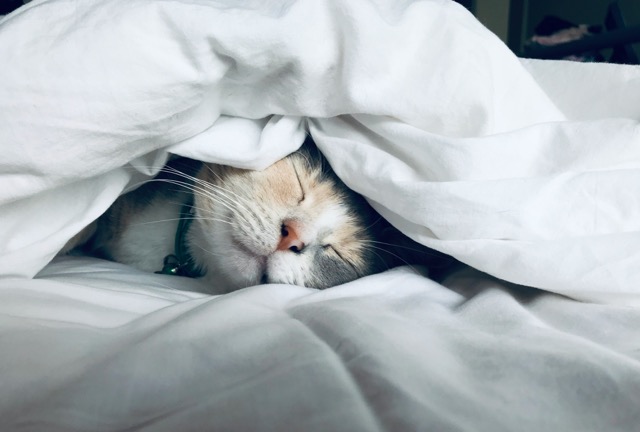If you’ve ever found yourself lying wide awake at 2am, heart racing or brain buzzing, despite doing all the “right” things for sleep, it might be time to look deeper. For those dealing with histamine intolerance, one sneaky reason behind broken or poor-quality sleep is histamine itself.
Most people know histamine as the compound that flares up during hayfever season or after eating something that doesn’t agree with them. But it turns out, histamine is also a key player in your brain and nervous system. It affects your alertness, stress response, body temperature and even your ability to fall into a deep, restful sleep.
While you may be focusing on sleep hygiene or switching off screens before bed, histamine might be working quietly in the background to keep your brain switched on. I’ll explain how histamine affects your sleep and what simple, natural changes can support a more restorative night.
Histamine: More Than Just Allergies
We tend to think of histamine as the thing responsible for itchy eyes and sneezing, but it plays a much bigger role in the body. Histamine is a natural chemical messenger involved in several key processes.
It acts as:
- A neurotransmitter in the brain, helping regulate your sleep and wake cycles
- A stimulant for digestion, encouraging the release of stomach acid
- A chemical involved in immune defence, responding to infections and injuries
Your body makes histamine every day, not just in response to allergens. It’s produced in mast cells, certain immune cells and even in your gut lining. Normally, this histamine is broken down by enzymes such as DAO (diamine oxidase) and HNMT. But when those enzymes are sluggish, overwhelmed or genetically limited, histamine can accumulate.
This build-up may be subtle at first—perhaps some bloating, skin reactions or brain fog—but for many, one of the most disruptive signs is disturbed sleep. And because histamine’s connection to the nervous system isn’t widely discussed, it often flies under the radar.
How High Histamine Affects Sleep
Histamine is a natural wake-promoting chemical. It plays a role in helping you feel alert and focused during the day. In fact, histamine levels in the brain are highest during periods of wakefulness and lowest during sleep.
But when histamine levels are too high, or when your body struggles to clear histamine efficiently, you can feel wired even when you’re physically tired. Here’s how elevated histamine can impact your sleep:
Difficulty falling asleep
Histamine keeps the brain’s alertness centre, the hypothalamus, switched on. So if your levels are still high at night, it can be hard to switch off, even when you’re exhausted.
Frequent night waking
A common pattern is waking between 1 and 4am, often with a racing heart or feeling hot. These early morning hours coincide with natural shifts in hormones and nervous system activity, which can amplify histamine sensitivity.
Restless or vivid dreaming
Histamine is involved in REM sleep, the dreaming phase. Too much histamine can lead to fragmented sleep, intense or vivid dreams and feeling unrefreshed on waking.
Sensitivity to noise and temperature
Histamine heightens sensory perception. If you find yourself waking easily from small sounds or fluctuations in temperature, histamine might be contributing.
Fluctuations with your menstrual cycle
Oestrogen increases histamine and reduces DAO activity. Many people with histamine intolerance find their sleep is worse during ovulation or the days before their period, when oestrogen is naturally higher. Read more about the Oestrogen and Histamine Connection here.
Over time, this disrupted sleep can lead to increased inflammation, fatigue, anxiety and immune stress—each of which feeds back into histamine production. Which brings us to the next point.
The Sleep and Histamine Feedback Loop
Sleep and histamine have a two-way relationship. Not only can high histamine cause disrupted sleep, but poor sleep can increase histamine in return.
When you don’t sleep, your body is in a stress state. In this state your body produces more cortisol, the stress hormone. Cortisol raises inflammation and stimulates histamine release. So even one poor night’s sleep can lead to a rise in histamine the next day—especially if you’re already sensitive. Read more about histamine intolerance and stress here.
Lack of sleep also reduces DAO enzyme activity. This makes it harder for your body to break down histamine, so it sticks around longer, causing more symptoms.
This cycle can easily become a loop: poor sleep increases histamine, and high histamine disrupts sleep. For those with histamine intolerance, breaking this pattern is key to feeling better.
Sleep Hygiene Tips for Histamine Intolerance
There’s good news. Once you understand histamine’s role in sleep, you can start making small changes that support your body’s natural rhythm and reduce your overnight histamine load.
Here are some natural, practical strategies to try:
Avoid high histamine foods
If you’re sensitive to histamine, certain foods can trigger symptoms—including disrupted sleep. Common high histamine foods include leftovers, fermented products, processed meats, aged cheeses, alcohol & dark chocolate. Try to minimise these, especially in the evening, and focus on fresh, simple meals that are easier for your body to tolerate. Grab our free histamine food guide!
Eat enough during the day
Skipping meals or undereating can increase cortisol and stress on the body, both of which elevate histamine. Make sure you’re eating regular meals with a mix of protein, fats and carbohydrates.
Create a calming wind-down routine
Stress is a major trigger for histamine release. Having a gentle evening routine helps signal safety to your nervous system. Try slow breathing, restorative yoga, journaling, herbal tea or simply dimming the lights and reading something calming. Read more about Histamine and Stress here.
Support your gut health
Because much of your histamine metabolism happens in the gut, supporting digestion is key. Include foods that are soothing and anti-inflammatory for your body. This might include low histamine root vegetables, well-cooked meats and gut-friendly herbs.
Keep your sleep environment cool and allergy friendly
Histamine raises body temperature, so a cool room helps. Also consider air filters, dust mite covers and avoiding fragrances or chemicals that could irritate your sinuses. Clean, fresh air makes a difference.
Choose the herbal teas
Some teas can be helpful in the evening. Tulsi, ginger and rooibos are generally well tolerated. Avoid green tea or black tea, which can increase histamine or act as histamine liberators.
Practice breathing techniques or vagus nerve resets
Deep breathing before bed helps activate your parasympathetic nervous system. Try simple breathing patterns such as 4-7-8 breathing or long exhales before sleep.
Get natural light in the morning
Light helps regulate your circadian rhythm, which in turn balances your histamine levels. Allow natural light into your room, sit outside with a cup of tea or take a short walk to get morning light into your eyes.
Don’t wait until you’re exhausted
Waiting until you’re completely wiped out to go to bed can backfire. When you push past your natural tired point, your body can rebound with a stress response. Start your wind-down at least an hour before bed so your nervous system has time to settle. Read more about fatigue here.
If you’re struggling with sleep, and nothing seems to be working, it’s worth considering whether histamine could be playing a role. From food timing to hormone balance, from your gut to your brain, histamine affects many systems that influence sleep.
You don’t need to overhaul your whole life overnight. Start by noticing any patterns between your food, symptoms and sleep. Keep a simple journal if that helps. Then layer in a few calming, supportive routines, whether it’s a fresh low histamine dinner, an evening meditation or a quiet breath practice.
When your body feels safe and supported, histamine begins to settle. And sleep, rather than being something you chase, becomes something your body can welcome again.
If high histamine, restless nights or that wired-but-tired feeling are wearing you down, it may be time to support your brain and nervous system on a deeper level. My BrainFood program is designed to help calm the mind, support focus and reduce the overwhelm that can fuel histamine and sleep issues. It’s a gentle, food-based approach grounded in neuroscience and ideal for anyone navigating stress, fatigue or histamine-related symptoms. Learn more here.

Stuck dealing with confusing, frustrating and chronic symptoms and can’t seem to figure out why?
Join BrainFood and learn how to use the latest Neuroscience to help your body heal.
Use easy tools to reduce symptoms, calm anxiety, improve sleep, increase tolerance to foods and activities and get better results from treatments.

 How to regulate your nervous system with Anchoring
How to regulate your nervous system with Anchoring